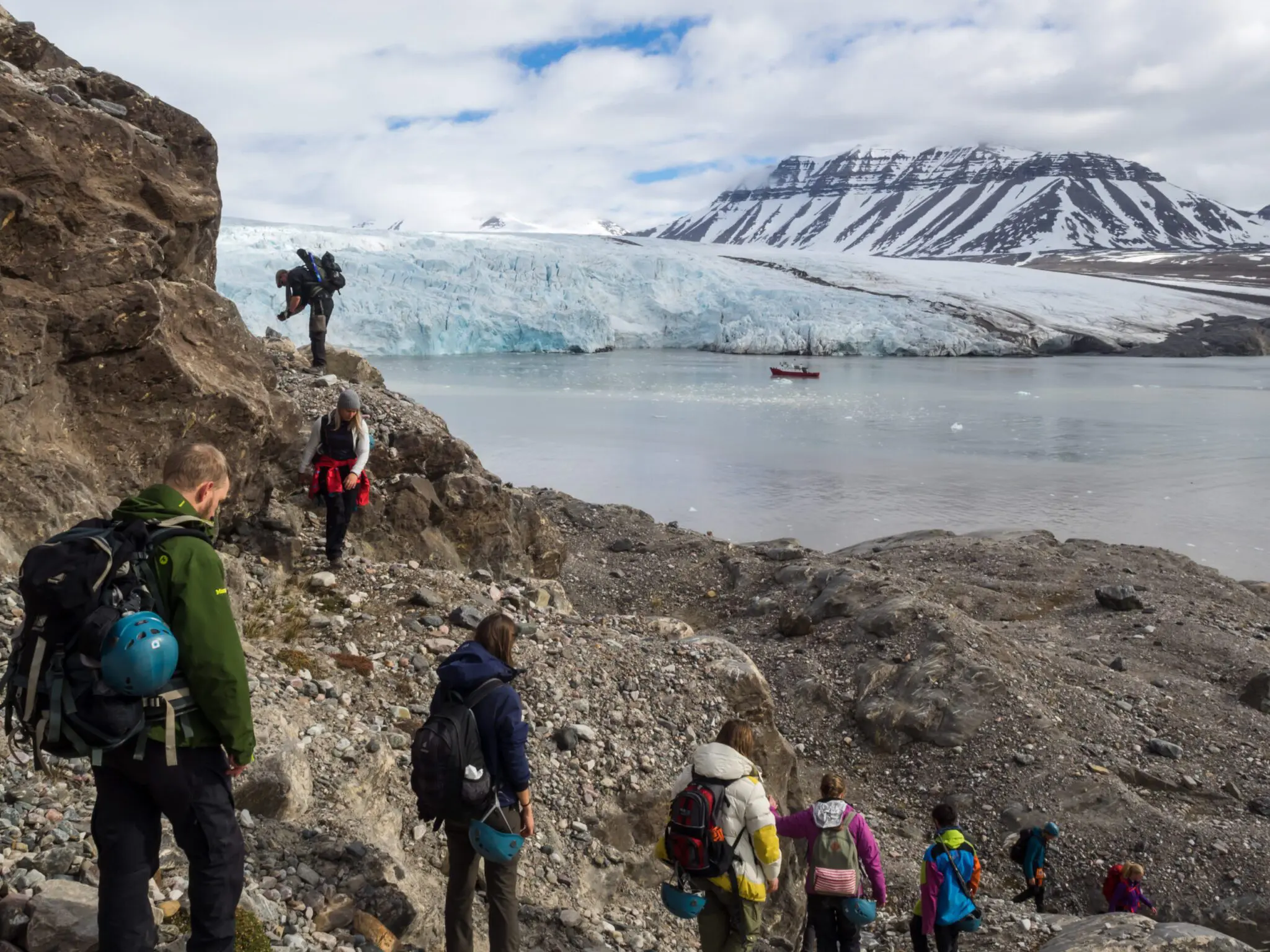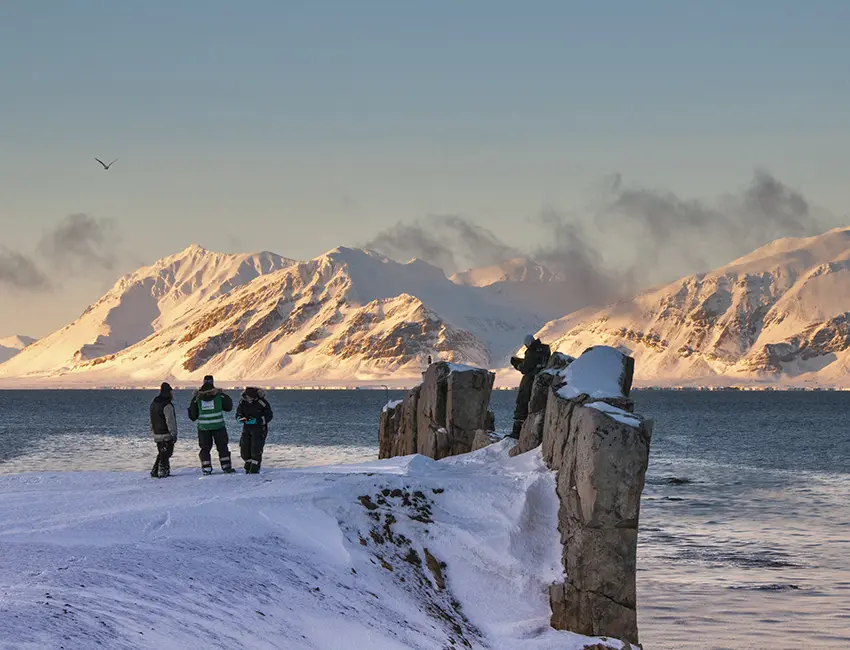

Arctic Safety Centre
Our main task is to offer research-based and practical knowledge and expertise related to safety for the local community, with businesses and other actors who conduct field activity on Svalbard.
Focus areas are supporting field safety, societal safety, and emergency preparedness – all in an Arctic context with natural hazards and climate adaptations as important factors.
The basis for the centre’s activities is more than 30 years of experience from UNIS’ field activities related to teaching and research. The government’s “Strategy for innovation and business development in Svalbard” has been a guideline for the activity in the centre over the past years.

Arctic Biology research
The Arctic Biology Department at UNIS is the only European High Arctic situated biology department realizing undergraduate education, graduate research experience and Arctic research on a regular basis.
The biological research at UNIS covers three interacting main topics: Climate change biology, Seasonal ecology, and Spatio-temporal dynamics of species and systems.

Arctic Geology research
The Arctic Geology Department research is focused on the geological evolution of Svalbard and the Barents Shelf, as recorded in its spectacular geological sequences spanning from the Precambrian to the Cenozoic, and overlain by Quaternary glacial and interglacial deposits.
Easily accessible outcrops make it possible to research the interplay of continental drift with tectonic, glacial, periglacial, coastal, fluvial and marine sedimentary processes. The close proximity of active glacial, periglacial, marine and terrestrial environments also provides an exciting field laboratory on our doorstep.

Arctic Geophysics research
The research at the Arctic Geophysics Department spans over a vertical range from the depths of the ocean through snow and ice covered land, and the entire atmospheric column to the solar winds in outer space.
The emphasis is on geophysical phenomena in Polar regions with implications for global currents in the ocean and atmosphere, and radiative processes in the atmosphere and on the ground. These issues are all pertinent in connection with environmental and climatic change questions.

Arctic Technology research
The Arctic Technology Department conducts research within two fields:
Arctic Engineering concentrates on engineering problems to be tackled when settling in the frozen Arctic environment: permafrost ground and its changing thermal regime, bearing strength of foundations and structures, soil slope stability, avalanches, sea ice properies and loads from ice, and various Arctic offshore oil and gas exploitation and potable water supply.
Arctic Environmental Technology and Chemistry concentrates on current and potential pollution problems, environmental impacts and feasible remediation techniques in Arctic areas.